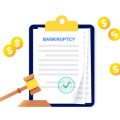Understanding Comprehensive Car Insurance in the UK
Comprehensive car insurance is widely regarded as the most extensive level of cover available to UK motorists. Unlike third-party or third-party, fire and theft policies, comprehensive insurance provides protection not only for damages to other vehicles and property but also covers your own vehicle against a broad range of risks. This includes accidental damage, vandalism, fire, theft, and even certain natural disasters. For many drivers, especially those with newer or higher-value cars, opting for comprehensive cover offers peace of mind that goes beyond the basic legal requirement. While it generally comes at a higher premium compared to third-party options, the scope of financial protection can save significant costs in the event of an accident or unforeseen incident. Understanding what your policy specifically includes is crucial before making a claim, as this influences both eligibility and potential out-of-pocket expenses.
2. Initial Steps to Take After an Incident
When you are involved in a car accident or any incident that may result in a claim under your comprehensive car insurance in the UK, it is crucial to act promptly and follow the correct procedures. These initial steps not only ensure your safety but also help strengthen your claim and comply with UK legal requirements.
Immediate Actions to Ensure Safety
The first priority after any road incident is safety. Switch off your engine, turn on hazard lights, and check for injuries. Move to a safe location if possible, but do not leave the scene entirely. If anyone is injured or there is a danger (such as leaking fuel), call 999 immediately for emergency assistance.
Gathering Essential Evidence
To support your insurance claim, collect as much information as possible at the scene. The table below outlines key evidence you should gather:
| Information Required | Details |
|---|---|
| Other Driver’s Details | Name, address, contact number, and insurance details |
| Vehicle Information | Make, model, colour, and registration number of all vehicles involved |
| Photos/Videos | Clear images of damage, vehicle positions, road conditions, and surroundings |
| Witnesses | Names and contact details of any witnesses present |
| Date and Time | Accurate record of when the incident occurred |
| Description of Incident | Your own account of what happened, including weather and road conditions |
Notifying Authorities as per UK Regulations
If the accident involves injury, property damage, or if you fail to exchange details at the scene, UK law requires you to report the incident to the police within 24 hours. This is essential for legal compliance and may be necessary for your insurer to process your claim.
Summary Table: Immediate Steps Post-Incident
| Step | Purpose/Requirement (UK Context) |
|---|---|
| Ensure Safety & Call Emergency Services if Needed | Protect lives; legal duty in case of injury or danger |
| Collect Evidence & Witness Statements | Strengthen claim; required by insurers and police reports |
| Exchange Details with Other Parties Involved | Legal requirement under Road Traffic Act 1988 |
| Report to Police (if applicable) | Mandatory within 24 hours if details are not exchanged or if there is injury/damage |
| Notify Your Insurer Promptly | Avoid claim delays; some policies require notification within 24 hours regardless of fault/liability determination |
By following these immediate steps after an incident in line with UK regulations, you lay a solid foundation for a smooth claims process and help mitigate potential costs or complications later on.

3. Notifying Your Insurer
When you are involved in an incident and wish to make a claim under your comprehensive car insurance policy, it is crucial to inform your insurer as soon as possible. In the UK, most insurance providers require notification within 24 hours of the event, regardless of whether you intend to proceed with a claim or not. Prompt notification helps avoid potential disputes and ensures that your claim is processed efficiently.
How to Contact Your Insurance Provider
UK insurers typically offer several methods for reporting an incident. The most common options include:
- Dedicated claims helplines: Most major insurers operate 24/7 telephone lines specifically for claims. These numbers are usually listed on your policy documents and the insurer’s website.
- Online portals: Many providers now allow policyholders to start a claim online by filling out a digital form and uploading relevant information and documents.
- Email: Some insurers accept initial claims notifications via email, though they may require follow-up over the phone or through their portal.
Information and Documentation Required
When contacting your insurer, be prepared to provide key details, including:
- Your policy number and personal contact information
- Date, time, and location of the incident
- A brief description of what happened
- Names, addresses, and insurance details of any other parties involved
- Police crime reference number if applicable (especially in cases of theft or vandalism)
- Photographs of the damage, scene, and vehicle positions (if safe to do so)
UK-Specific Considerations
If you have breakdown cover as part of your comprehensive policy, some insurers also provide an emergency roadside assistance number. Additionally, if your vehicle is undriveable or needs recovery, notify your insurer immediately so they can arrange appropriate services.
Document all communications with your provider for future reference. In the UK, failing to report an incident promptly—even if you do not make a claim—can sometimes result in policy cancellation or difficulties at renewal. Always check your policy wording for specific requirements regarding notification timelines and procedures.
4. Assessment and Documentation Requirements
After notifying your insurer about an incident, the next crucial step in the UK comprehensive car insurance claims process is the assessment phase. This stage involves a thorough evaluation by a loss adjuster, whose role is to determine the extent of damage or loss, validate the claim’s legitimacy, and estimate repair costs. Understanding what to expect during this phase and preparing the correct documentation is vital for a smooth and efficient claim.
The Role of Loss Adjusters
Loss adjusters are impartial professionals appointed by insurers to investigate complex or high-value claims. In the UK context, their duties typically include inspecting the damaged vehicle, reviewing incident circumstances, interviewing involved parties, and liaising with approved repair shops. They focus on confirming policy coverage, identifying any discrepancies or fraud indicators, and ensuring cost-effective repairs that comply with British standards.
Standard Documentation Requirements
To support your claim, UK insurers generally require a specific set of documents. Having these ready can speed up both assessment and settlement:
| Document Type | Description | Why It’s Needed |
|---|---|---|
| Claim Form | Completed form provided by your insurer detailing the incident | Initiates formal claim process; records essential facts |
| Proof of Insurance | Your valid insurance certificate or policy document | Confirms active comprehensive cover at time of incident |
| Driving Licence | Copy of the driver’s current UK driving licence | Validates legal permission to drive at time of incident |
| MOT Certificate (if applicable) | Recent MOT test pass certificate for the vehicle | Confirms roadworthiness as required by UK law |
| Vehicle Registration Document (V5C) | Your log book proving vehicle ownership | Establishes you as the legitimate claimant |
| Police Report Number (if required) | If reported to police, such as for theft or major accidents | Provides official record of incident circumstances |
| Photographs/Evidence | Pics of damage, accident scene, dashcam footage if available | Aids in assessment and supports your account of events |
| Repair Estimates/Invoices | Quotes from approved UK repairers or completed invoices if repairs are urgent/safety-related | Helps loss adjuster verify costs and authorise payments efficiently |
| Witness Statements (if applicable) | Name and contact details of independent witnesses to the event | Adds credibility and may resolve liability disputes more swiftly |
Troubleshooting Common Issues
If any documentation is missing or unclear, this can delay your claim. Insurers may request additional evidence or clarification, especially if there are inconsistencies between your account and third-party statements. For best results, keep original copies, submit digital scans where possible, and respond promptly to all correspondence from your insurer or their appointed loss adjuster.
Cost Implications of Documentation Delays
A well-prepared documentation package minimises delays in both assessment and final settlement. Inadequate paperwork can result in prolonged vehicle downtime or even denial of part or all of your claim—potentially increasing out-of-pocket expenses such as hiring a replacement car or covering uninsured losses.
Summary Checklist for UK Car Insurance Claims
- Gather all relevant documents before submitting your claim.
- Liaise proactively with loss adjusters for site visits and inspections.
- Retain copies of every submission for your records.
- Gather all relevant documents before submitting your claim.
- Liaise proactively with loss adjusters for site visits and inspections.
- Retain copies of every submission for your records.
This systematic approach ensures compliance with typical British insurance standards and can significantly improve your claims experience.
5. Repair, Replacement, and Settlement Procedures
Once your car insurance claim has been accepted by your insurer in the UK, you will enter the repair, replacement, or settlement phase. This stage is crucial as it determines how quickly you can get back on the road and what costs might be involved. Understanding local practices and your rights as a policyholder helps ensure a smooth process.
Approved Repair Networks
Most UK insurers have a network of approved garages or repair centres. If you choose one of these, repairs are typically guaranteed for a set period (often three years), and the insurer pays the garage directly. If you prefer to use your own garage, you may need to pay upfront and claim reimbursement, but note that non-approved repairs might not carry the same guarantees or could affect future claims.
Replacement Vehicles
If your vehicle is rendered unroadworthy or needs extensive repairs, many comprehensive policies include provision for a courtesy car. However, the availability and type of replacement vehicle depend on your policy details and the insurer’s arrangements. Some insurers provide a like-for-like replacement; others offer a standard small hatchback. Always check if there are any time limits or additional charges for extended use.
Total Loss & Settlements
If your car is deemed a total loss (write-off), the insurer will usually offer a cash settlement based on the vehicle’s current market value in the UK at the time of the incident. You should expect an official valuation; if you disagree with it, you have the right to negotiate or provide evidence (such as recent adverts for similar cars). Remember, outstanding finance on the car is typically settled first before you receive any balance.
Customer Rights & Disputes
UK consumers are protected by regulations such as those enforced by the Financial Ombudsman Service. If you feel dissatisfied with the repair quality, settlement offer, or delays, you can file a formal complaint with your insurer. If unresolved, escalate to the Ombudsman for impartial review.
Cost Considerations
Your excess (the amount you agreed to pay towards any claim) will be deducted from settlements or may need paying directly to the repairer. Opting for non-approved services or upgrades not covered by your policy can result in additional out-of-pocket costs. Always keep receipts and correspondence for future reference.
6. Understanding Excess and Potential Costs
One crucial aspect of the UK comprehensive car insurance claims process is understanding how excess payments and additional costs can impact your financial outcome. This section provides an analytical breakdown to help policyholders navigate these expenses more effectively.
Excess Payments: What Are They?
When you make a claim on your comprehensive car insurance, you are typically required to pay an “excess” – the portion of the claim that you must cover yourself. There are two main types of excess in the UK:
Compulsory Excess
This is set by your insurer and is non-negotiable. It reflects your risk profile and type of cover.
Voluntary Excess
This is chosen by you when purchasing or renewing your policy. Opting for a higher voluntary excess can reduce your premium, but increases your out-of-pocket cost if you need to claim.
Potential Uncovered Expenses
Comprehensive policies are broad, but not all costs may be covered during a claim. Common uncovered expenses include:
- Wear and tear or depreciation
- Personal items stolen from the vehicle (unless specified)
- Upgrades or modifications not declared to the insurer
- Loss of use (such as alternative transport), unless courtesy car cover is included
Cost Management Tips During the Claims Process
- Review Your Policy: Before initiating a claim, check your policy documents to understand what is covered and excluded.
- Calculate If Its Worth Claiming: If repair costs are only slightly above your total excess, it may not be cost-effective to make a claim due to potential loss of no claims discount and future premium increases.
- Keep Records: Retain receipts and documentation for repairs and any communication with your insurer—these may support your case for minimising disputed expenses.
- Negotiate With Repairers: Many insurers have approved garages, but comparing quotes could help lower your overall costs if your policy allows freedom of choice.
Summary Table: Typical Excess and Extra Costs
| Type of Cost | Description |
|---|---|
| Compulsory Excess | The minimum amount set by insurer per claim |
| Voluntary Excess | Your chosen extra contribution per claim |
| Uncovered Expenses | Items or services not included in policy (e.g. personal belongings, certain upgrades) |
Navigating excess payments and associated costs with foresight can make the UK car insurance claims process less daunting and help ensure you remain financially protected without unnecessary surprises.
7. Dealing with Claim Disputes and Appeals
Sometimes, policyholders may find themselves disagreeing with their insurer’s decision regarding a comprehensive car insurance claim. In the UK, there is a structured process to address such disputes, ensuring fairness and transparency for consumers.
Understanding the Dispute Process
If you feel your claim has been unfairly declined or the settlement offered is insufficient, your first step should be to review your policy documents carefully. Check the reasons given by your insurer against the terms and conditions outlined in your policy.
Contacting Your Insurer
It’s advisable to contact your insurer directly, either via phone or in writing, to discuss your concerns. Clearly state why you disagree with their decision and provide any additional evidence or documentation that supports your case. Most insurers have a dedicated complaints team who will review your dispute internally.
Escalating Your Complaint
If you are dissatisfied with the insurer’s response after following their formal complaints procedure (which should be completed within eight weeks), you have the right to escalate the matter externally.
The Role of the Financial Ombudsman Service (FOS)
The Financial Ombudsman Service is an independent body in the UK that settles disputes between consumers and financial firms, including insurance providers. If you remain unhappy after exhausting your insurer’s complaints process, you can refer your case to the FOS free of charge.
How to Contact the FOS
You can submit your complaint to the Financial Ombudsman Service online, by post, or over the phone. The FOS will assess all evidence from both parties and make a binding decision. Their involvement ensures impartiality and protects consumer rights.
Key Considerations
Before escalating to external authorities, always keep records of all correspondence, evidence submitted, and responses received from your insurer. This documentation will be crucial if you need to present your case to the Ombudsman. Resolving disputes can take time, but knowing your rights and following the proper channels increases the likelihood of a fair outcome.

